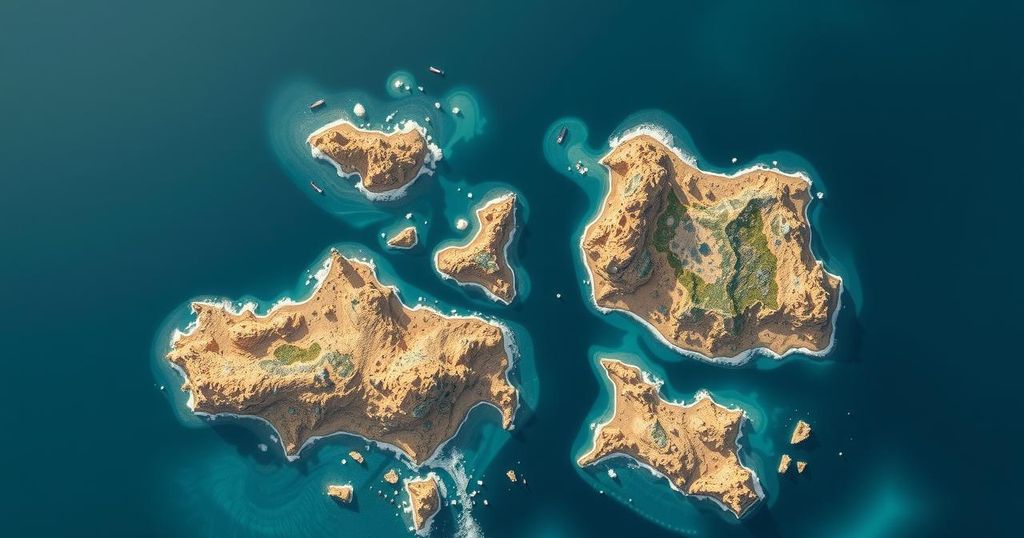The Territorial Dispute Over Iran and the U.A.E.’s Islands in the Persian Gulf

The article addresses the territorial dispute between Iran and the UAE over three small islands in the Strait of Hormuz, emphasizing their significant economic and strategic value. It traces the historical claims and geopolitical implications of the islands for both countries, highlighting the challenges in diplomatic resolution amidst heightened tensions.
In the Persian Gulf, the near conflict over three strategically significant islands—Abu Musa, Greater Tunb, and Lesser Tunb—highlights the contentious relationship between Iran and the United Arab Emirates (UAE). These islands are located near the Strait of Hormuz, a vital maritime passage where a significant percentage of the world’s oil is transported. The escalating tensions concerning territorial claims over these islands stem from their potential economic value and geopolitical implications amidst broader regional dynamics.
The historical context of the dispute dates back to the 1900s, when Iran gained control of the islands. Following the British withdrawal from the region in 1971, the UAE asserts its territorial rights over these lands, citing a claim rooted in decolonization. Iran, however, maintains steadfast control, viewing the islands as integral to its national sovereignty. The geopolitical significance has intensified as both nations seek to maximize their influence over energy transport routes and regional stability.
In conclusion, the territorial dispute over the three tiny islands in the Persian Gulf symbolizes the larger geopolitical struggles between Iran and the UAE. The islands not only represent a point of contention in terms of sovereignty but also signify broader economic interests in a region heavily reliant on oil exports. The ongoing discord is reflective of the intricate balance of power in the Middle East, underscoring the importance of diplomatic engagement to resolve such entrenched issues.
Original Source: www.rferl.org








